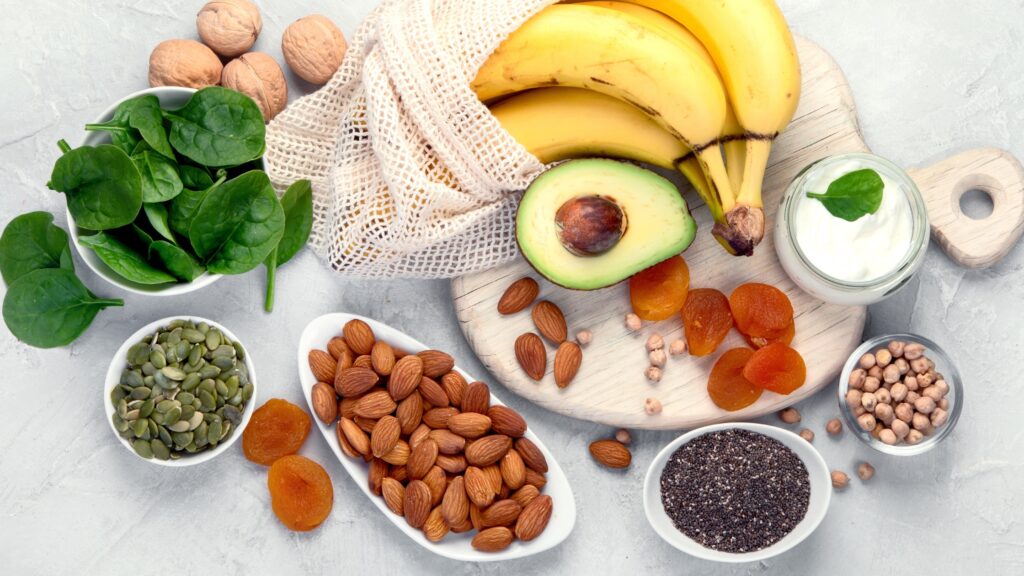As an endurance athlete, you push your body to remarkable limits, asking it to sustain performance over hours or even days of rigorous activity. Whether you’re training for a marathon, triathlon, or ultra-distance event, following an effective endurance athlete diet is just as important as the miles you log in training.
A carefully planned diet supports not only your performance during training and events but also your recovery, mental stamina, and long-term health. As a sports dietitian with years of experience working with endurance athletes, I can confidently say that what, when, and how you eat profoundly impacts your results.
In this post, we’ll explore the components of an effective endurance athlete diet, covering the roles of macronutrients, micronutrients, hydration, and meal timing. With evidence-based insights and practical strategies, this article will help you fuel optimally for both training and competition.
The Foundation of an Endurance Athlete Diet

Endurance sports demand steady energy, strong muscles, and optimal hydration. Unlike other types of athletes who may rely more on strength and power, endurance athletes require a unique balance of carbohydrates, protein, and fats. These macronutrients play different yet interconnected roles in providing energy and supporting muscle recovery.
Carbohydrates are the primary fuel source for endurance athletes because they provide quick, readily available energy. During intense exercise, the body breaks down glycogen, which is stored in muscles and the liver, into glucose to fuel muscle activity.
Endurance athletes should consume enough carbohydrates to not only fuel workouts but also to replenish glycogen stores after training, as low glycogen levels can quickly lead to fatigue.
Proteins are equally important but in a different way. Protein helps repair and rebuild muscle tissue, which is frequently broken down during intense training.
Inadequate protein intake can delay recovery and increase the risk of injuries. For endurance athletes, getting enough protein is crucial to allow muscles to rebuild stronger after each session.
Fats are essential for endurance athletes because they provide a long-lasting energy source, particularly during longer, steady-state exercise. While carbohydrates fuel the beginning of an activity, fats come into play as glycogen stores deplete over time.
Consuming healthy fats like those from avocados, nuts, and olive oil not only sustains energy but also supports joint health and reduces inflammation.
Daily Macronutrient Recommendations for Endurance Athletes
While precise nutritional needs vary based on individual factors like age, gender, and training intensity, there are general macronutrient guidelines endurance athletes can follow. Carbohydrates should make up the bulk of daily caloric intake, around 50-65% of total calories, depending on training volume.
Aiming for 5-7 grams of carbohydrates per kilogram of body weight daily can maintain glycogen stores during regular training. During periods of heavy training or right before competition, increasing intake to 8-12 grams per kilogram of body weight may be necessary to fully prepare muscles.
Protein intake for endurance athletes typically ranges between 1.2 and 2.2 grams per kilogram of body weight. Spreading protein intake evenly across meals and snacks supports muscle recovery and reduces muscle breakdown. Including a quality protein source like eggs, lean meats, dairy, or legumes at each meal and snack helps you meet your daily requirements.
Fats should comprise 20-35% of daily calories, focusing on sources of unsaturated fats like olive oil, nuts, seeds, and fatty fish. Healthy fats not only provide energy but also aid in the absorption of fat-soluble vitamins, like vitamins A, D, E, and K, which play roles in immune function, bone health, and antioxidant protection.

Timing Your Nutrition: Pre-, During, and Post-Training Strategies
When you eat is almost as important as what you eat for endurance athletes. Timing nutrition around your workouts can enhance performance, reduce fatigue, and speed up recovery.
Pre-Training Nutrition sets the stage for a productive workout. Eating a carbohydrate-rich meal or snack 2-4 hours before exercise helps top off glycogen stores, providing a steady energy source as you start training.
Good options include oatmeal with fruit, a smoothie with banana and yogurt, or a turkey and avocado sandwich on whole-grain bread. Avoid high-fat or high-fiber foods immediately before training, as these can cause digestive discomfort during intense exercise.
During Training Nutrition becomes crucial for workouts lasting over an hour. As glycogen stores begin to deplete, consuming easy-to-digest carbohydrates helps sustain energy levels. For most endurance athletes, 30-60 grams of carbohydrates per hour is sufficient to maintain performance.
Sports drinks, gels, and chews are convenient choices because they provide fast-absorbing carbs and electrolytes without straining the digestive system.
Post-Training Nutrition is essential for kickstarting recovery. A combination of carbohydrates and protein within 30-60 minutes after exercise helps replenish glycogen and repairs muscle tissue.
For optimal recovery, aim for a 3:1 ratio of carbs to protein—such as a smoothie with Greek yogurt, berries, and honey or a sandwich with lean meat on whole-grain bread. Additionally, continuing to eat balanced meals with quality protein, carbohydrates, and healthy fats throughout the day supports overall recovery.
Hydration and Electrolytes: Essential Components for Endurance

Hydration plays a vital role in endurance performance, yet it’s often underestimated. Even slight dehydration can lead to decreased endurance, muscle cramps, and impaired mental focus. The key to proper hydration is drinking regularly, not just before or during exercise but consistently throughout the day.
Before training, drinking about 500 ml (16 oz) of water in the hours leading up to a workout ensures that you’re starting hydrated. During exercise, aim to drink about 400-800 ml (14-28 oz) per hour, adjusting for sweat rate and temperature conditions. In hot or humid weather, the body loses fluids faster, so you may need to drink more.
Electrolytes, including sodium, potassium, and magnesium, are lost through sweat and must be replaced to maintain muscle function and prevent cramping. While water is suitable for short workouts, endurance athletes benefit from electrolyte-rich beverages for longer sessions. Options like coconut water, electrolyte drinks, and electrolyte tablets can replenish these vital minerals without excessive sugar.

Developing an Endurance Athlete Diet
Creating a balanced meal plan that incorporates carbohydrates, proteins, fats, and micronutrients can streamline your nutrition routine and build an optimal endurance athlete diet.
Here’s a sample day of meals for an endurance athlete to illustrate the balance of nutrients and timing:
- Breakfast: A bowl of oatmeal topped with blueberries, a handful of nuts, and a spoonful of Greek yogurt provides a mix of complex carbs, protein, and healthy fats. This combination offers a slow, steady energy release that’s perfect for morning training sessions.
- Mid-Morning Snack: A banana with almond butter is an easy-to-digest snack that offers quick carbs and healthy fats, making it ideal before or after a short workout.
- Lunch: A quinoa and vegetable salad with grilled chicken and avocado combines complex carbs, protein, and healthy fats to replenish energy and support muscle repair.
- Afternoon Snack: Greek yogurt with honey and mixed berries provides a blend of protein and antioxidants, helping with recovery and immune support.
- Dinner: Salmon with sweet potatoes and roasted vegetables delivers high-quality protein, omega-3 fatty acids, and complex carbs, all essential for post-training recovery.
- Evening Snack: A handful of nuts or a slice of whole-grain toast with nut butter provides an additional source of healthy fats, supporting muscle recovery overnight.
The diet of an endurance athlete is as strategic as the training itself. By prioritizing carbohydrates, protein, healthy fats, hydration, and micronutrients, you’re setting yourself up for sustainable, peak performance. Nutrition isn’t just a supporting player in endurance sports; it’s a key component that powers your journey from the first mile to the finish line.

and what are your thoughts on spikes in Insulin; ie eating 6-7 times a day? Training the body to rely on glucose?